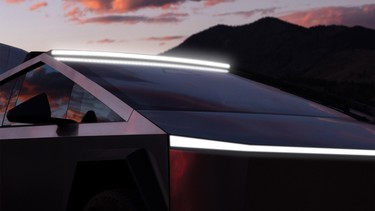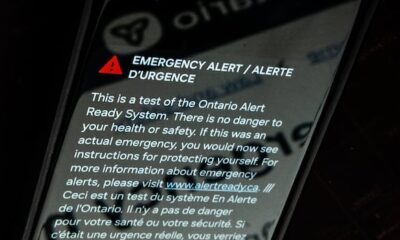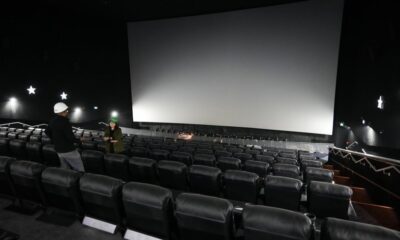Technology
Tesla Recalls Cybertrucks Over Faulty Light Bar Attachment

Tesla has issued a recall for its Cybertruck model due to concerns regarding an accessory light bar that may detach while the vehicle is in motion. This recall affects approximately 6,197 vehicles from the 2024 model year in the United States and 91 units in Canada, according to the U.S. National Highway Traffic Safety Administration (NHTSA) and Transport Canada.
The issue revolves around a special-order accessory light bar that is not standard equipment but is instead installed by service upon request. The light bar is mounted at the top of the windshield and may have been improperly affixed due to the use of an incorrect surface primer. Reports suggest that technicians may have confused two adhesives, BetaSeal and BetaPrime, which are crucial for ensuring the light bar’s secure attachment.
The recall is a response to 619 warranty claims related to this problem. Transport Canada has indicated that the solution involves the installation of “additional fasteners,” while the NHTSA elaborates that dealerships will conduct inspections and may either install an additional mechanical attachment or replace the light bar. This process may include using tape to reinforce the light bar’s adherence to the windshield, reverting to more traditional fastening methods rather than relying solely on adhesives.
Details of the Recall and Impact on Owners
The light bar in question is considered one of the more notable accessories for the Cybertruck. However, its delivery was reportedly delayed, and it is important to note that it was not technically road-legal at the time, meaning owners were responsible for wiring it themselves. The reference number for this recall from Transport Canada is 2025-591, and Tesla’s internal code for this issue is SB-25-90-001.
Despite the high-tech nature of the Cybertruck, the recall highlights an interesting shift back to more conventional mechanical solutions. In an era where structural adhesives are commonly used in vehicle assembly, Tesla’s decision to incorporate additional mechanical fasteners raises questions about the effectiveness and reliability of the initial installation process.
As Tesla works to address these concerns, affected owners are encouraged to reach out to their local dealerships for further assistance. The company continues to emphasize its commitment to safety and customer satisfaction as it navigates the complexities of manufacturing and accessory installation in its innovative electric vehicle lineup.
-

 World4 months ago
World4 months agoScientists Unearth Ancient Antarctic Ice to Unlock Climate Secrets
-

 Entertainment4 months ago
Entertainment4 months agoTrump and McCormick to Announce $70 Billion Energy Investments
-

 Lifestyle4 months ago
Lifestyle4 months agoTransLink Launches Food Truck Program to Boost Revenue in Vancouver
-

 Science4 months ago
Science4 months agoFour Astronauts Return to Earth After International Space Station Mission
-

 Technology2 months ago
Technology2 months agoApple Notes Enhances Functionality with Markdown Support in macOS 26
-

 Top Stories4 weeks ago
Top Stories4 weeks agoUrgent Update: Fatal Crash on Highway 99 Claims Life of Pitt Meadows Man
-

 Sports4 months ago
Sports4 months agoSearch Underway for Missing Hunter Amid Hokkaido Bear Emergency
-

 Politics3 months ago
Politics3 months agoUkrainian Tennis Star Elina Svitolina Faces Death Threats Online
-

 Politics4 months ago
Politics4 months agoCarney Engages First Nations Leaders at Development Law Summit
-

 Technology4 months ago
Technology4 months agoFrosthaven Launches Early Access on July 31, 2025
-

 Top Stories2 weeks ago
Top Stories2 weeks agoFamily Remembers Beverley Rowbotham 25 Years After Murder
-

 Top Stories6 days ago
Top Stories6 days agoBlake Snell’s Frustration Ignites Toronto Blue Jays Fan Fury




















